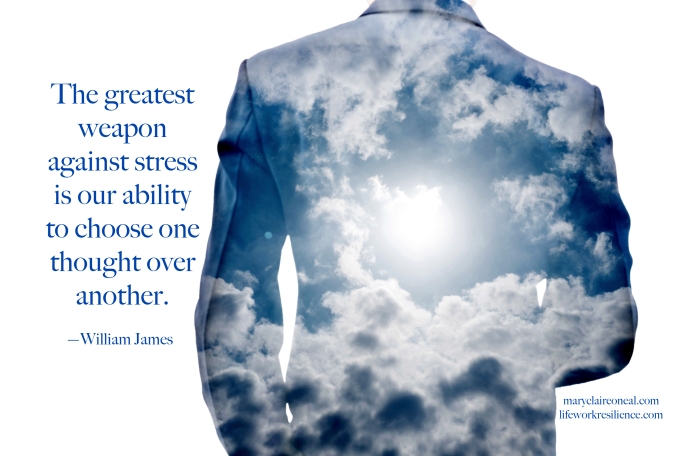
This is the beginning of a series of articles designed to be read quickly during your busy day with at least one practical tip for you to try. I always remind my clients that there is no one way to do anything. You might find that this article series sparks off some ideas of your own to be more aware of how you are focusing your thoughts, emotions and energy. If you would like to share them with others, please do in the comment section below this article.
Awareness of our thoughts is at least 95% of making a change in what and where we are focusing our energy. Functioning in “automatic pilot” is one of the largest obstacles in the way of creating positive experiences like success, fulfillment and balance on a daily basis. It’s easy to lose passion for something that has become a rut because we are no longer bringing our awareness and, therefore, creativity to it. In each moment is the opportunity to make it magnificent.
Slowing down just enough to listen to that still, small voice within will help connect with the inner compass of one’s unique talents and values (instead of taking them for granted). Brilliance, happiness and balance can follow when making aware choices in the moment of what thoughts we choose to entertain and navigate us through life.
Tip#1: Instead of starting the day with the news or getting online, try planning first thing into your morning 20 to 30 minutes of time to get your day focused in a positive frame of mind. I found that getting up 30 minutes earlier was what I needed to have that quiet time to meditate, write down gratitudes and review my “to do” list, prioritizing items for work, home/family, and service in the world (volunteer work for my favorite non-profit or in the community, for example). Doing this first–even before exercising and breakfast really gets the day off to a positive, clear, energetic start. I feel ready and prepared for my day.
© Copyright 2016, Mary Claire O’Neal
Mary Claire O’Neal is a certified coach, communication/leadership consultant, Heartmath® Certified Trainer and Coach and is the author of the award-winning book, Becoming What You Want to See in the World.






 Friday, Oct. 2, 2009 was the 140th birth anniversary of a very powerful role model in my life and the lives of many others, Mohandas K. Gandhi. He showed the world that one man can live with such impeccability and integrity that he could lead and become a peaceful force that would empower a whole nation. The way he lived his life became a true model in our world for living with integrity and love in intent, thought, word and deed.
Friday, Oct. 2, 2009 was the 140th birth anniversary of a very powerful role model in my life and the lives of many others, Mohandas K. Gandhi. He showed the world that one man can live with such impeccability and integrity that he could lead and become a peaceful force that would empower a whole nation. The way he lived his life became a true model in our world for living with integrity and love in intent, thought, word and deed.
 M. K. Gandhi said, “There is more to life than increasing its speed.” One of the things Gandhi may be referring to is slowing down enough to listen. Really listen. “Slow down to listen to what?” you may ask. My answer would be many voices and yet one voice: That still, small voice within, or the same situation that presents itself over and over, or doors opening or closing, or what a child is saying with his behavior.
M. K. Gandhi said, “There is more to life than increasing its speed.” One of the things Gandhi may be referring to is slowing down enough to listen. Really listen. “Slow down to listen to what?” you may ask. My answer would be many voices and yet one voice: That still, small voice within, or the same situation that presents itself over and over, or doors opening or closing, or what a child is saying with his behavior. What is mastery over ourselves? What could that look like?
What is mastery over ourselves? What could that look like?
You must be logged in to post a comment.